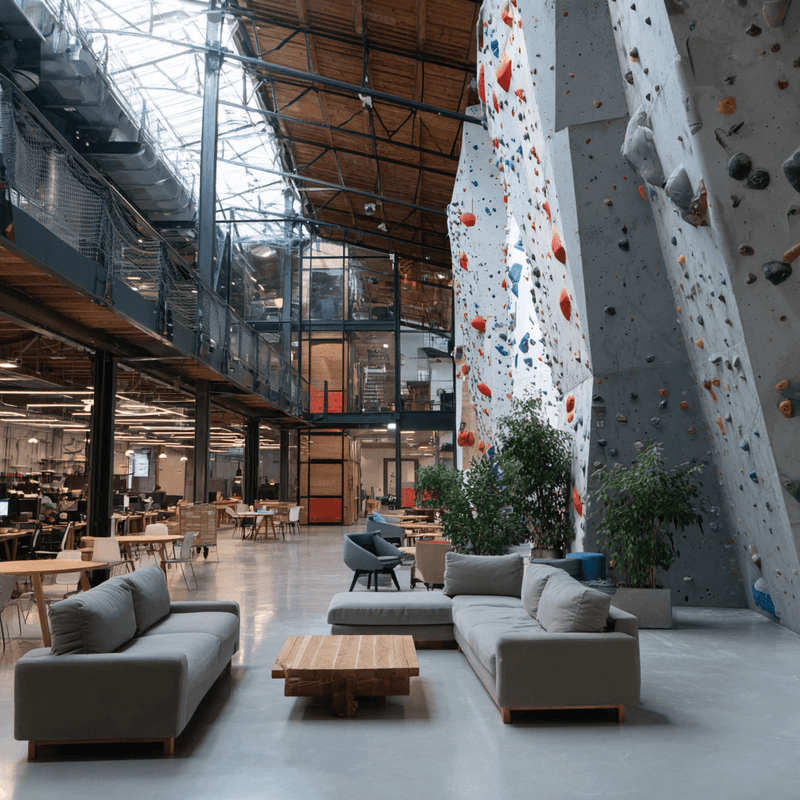
There was a time, not so long ago, when pioneering companies imposed a 100% telecommuting policy for all their employees. This choice, radical at the time, seemed to define the future of work. Today, however, these same companies are returning to a more present mobilization of their teams, marking a gradual return to full-time face-to-face work. In mid-September, the giant Amazon dropped a time bomb when it announced to its employees the end of telecommuting and a - straightforward - return to their company premises. While this case study from the other side of the Atlantic is causing quite a stir, it should be noted that many French companies have also reversed their position on teleworking and/or drastically reduced the number of teleworking days allowed per week. But is it possible to turn back the clock on a large scale in France? No, because the future is written differently: that of flexible workspaces.
Why are companies calling for a return to face-to-face working?
The reasons given by companies to justify this change are numerous, and seem to be part of a clear organizational logic. These include the need to strengthen team spirit and cohesion, elements which some managers feel have suffered during periods of working entirely remotely. It's also a question of streamlining managerial processes and strategies, which don't always prove effective at a distance, particularly for projects requiring close collaboration or supervision. That's side A, because side B also shows that these practices can help companies in difficulty to "optimize" their payroll. The decision to make such a drastic choice has a knock-on effect in terms of voluntary departures.
Flore Pradère, director of research and office foresight at commercial real estate specialist JLL, told the Insolentiae blog that "what's at stake today is a major debate on the notion of productivity". Stephen Schwarzman, head of the Blackstone investment fund, even told RFI that " people have become accustomed to staying at home because they work less than they do in the office, whatever they say. " In other words, teleworkers are "teleteachers ". The words are out...
Rest assured, however, that in France, this model remains on the bangs and is unlikely to be deployed on a massive scale. The cases of Google and its similar announcement last year, where little has changed since, show us that the application of such measures is not always straightforward. Between announcements and reality, flexibility remains a major issue. Dominique Feu, in his podcast on France Inter, explores these issues in depth, reminding us that the end of telecommuting does not mean a step backwards, but rather a search for new, balanced solutions.
The middle ground: towards a reinvention of workspaces?
Behind this desire to bring teams back together in physical offices, however, lie profound repercussions for employees. This transition not only disrupts their family organization - child management, geographical mobility, etc. - but also calls into question certain aspects of their lives. - but it also calls into question certain advantages that had made telecommuting an argument for attracting and retaining talent.
So, are we in the process of taking away the advantages offered to employees? Not necessarily. The key lies not in a straightforward return to the office, but in a reinvention of workspaces. Large companies are beginning to ask themselves how they can maintain the benefits of telecommuting, while returning in part to a more collective dynamic. The future could be marked - and already is - by the creation of "mini-clusters" of regional offices, spaces closer to employees and decentralized from headquarters in major cities. Welcome to the era of flexible, on-demand offices.
This model makes it possible to meet both the organizational needs of companies and the requirements of their employees. Favoring a hybrid approach, these flexible works paces combine coworking spaces and private office spaces, enabling a close bond to be maintained with the company and its teams. This model is already in place in a number of technology companies, such as Scaleway, which combines telecommuting and supervised face-to-face working, with on-site trial periods, or with the obligation to spend a certain number of days in the office per week or per month.
Flexible workspaces: a strong economic impact for regions
The return to the office also raises economic questions. Regions and territories that had been able to take advantage of the nomadism of telecommuting employees could see their local economies affected. Telecommuting had helped to revitalize certain rural or outlying areas by attracting workers who, freed from geographical constraints, were able to live outside the major metropolises. The number of coworking spaces has exploded in recent years. With 3,420 coworking spaces across the country in 2023 (+23% vs. 2022), the coworking space landscape continues to structure and develop: IWG, WeWork, Morning, Wojo, Startway, Now, Newton Office, BURO Club and Multiburo are now emerging as economic and social gas pedals for territories.
It's a sign that the latter are not ready to give up on the dynamism brought about by these spaces.
The future is being written with flexibility in mind. It's not a question of choosing between remote and face-to-face working, but rather of adopting models that combine the best of both worlds. The workspaces of the future will be flexible, hybrid and decentralized. The companies that succeed in this transition will be those that know not only how to meet their organizational needs, but also the expectations of their employees.
-
Top 5 coworking spaces in Nantes

07/01/2026 Top 5 coworking spaces in Nantes
In Nantes, the office real estate market is experiencing a trompe-l'œil recovery: with 42,100 m² placed in the first half of 2025 (+14% vs. 2024), momentum seems to be picking up, but the market remains structurally fragile.New supply is scarce, average floor space is shrinking (386 m²), and the rise of telecommuting is causing office occupancy rates to fall below 50% on certain days. However, coworking, and more specifically the flexible office in Nantes, is emerging as a concrete response to new working practices for major accounts and their employees.
-
Sport coworking: when the workspace becomes a place of well-being and performance

22/12/2025 Sport coworking: when the workspace becomes a place of well-being and performance
After the democratization of telecommuting, the rise of the flex-office and the growing popularity of third places, a new trend is quietly but surely emerging: sports coworking. A trend as powerful as the French craze for running in France. At the crossroads of well-being, performance and transformed uses, these hybrid spaces are challenging the way we live and work.
-
Announcing the birth of new coworking spaces

01/12/2025 Announcing the birth of new coworking spaces
Looks like the family is growing! Everywhere in France in 2025, new coworking spaces and flexible workspaces are springing up, in Paris of course, but also in Rennes, Dijon, Clermont, Brest, and even in small towns that had never seen a shared office before.